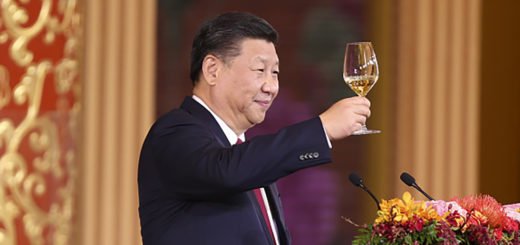Here’s how the world reacts over Chinese Security Law for Hongkong

The Chinese parliament has passed the national security legislation for Hong Kong and the world has begun to react to it. Among the first to react were the United States and Taiwan.
US Secretary of State Mike Pompeo has told the Congress that Hong Kong no longer enjoys autonomy from China in the eyes of the administration. He said in a statement, “[I] certified to Congress today that Hong Kong does not continue to warrant treatment under United States laws in the same manner as U.S. laws were applied to Hong Kong before July 1997. No reasonable person can assert today that Hong Kong maintains a high degree of autonomy from China, given facts on the ground.”

Translated into policy, this may have significant repercussions for the United States, China, and Hong Kong’s status as a financial hub as this will subject Hong Kong to the same trade war as mainland China.
The United States has also called for a United Nations Security Council meeting on Hong Kong, saying “this is a matter of urgent global concern that implicates international peace and security, and warrants the immediate attention of the UN Security Council”.
Taiwan’s President Tsai Ing-wen had already pledged support to Hong Kong immediately after Beijing announced it would go ahead with the legislation. Now President Tsai has asked her government to work on a “humanitarian assistance action plan for Hong Kong’s people that lays out clear, complete plans for residence, placement, employment, and life” in Taiwan at the earliest. She said in a tweet, “Taiwan’s commitment to caring for people of Hong Kong will not change, no matter what adjustments we make to our systems.”
The United States has also issued a joint statement with the United Kingdom, Australia, and Canada. In the joint statement, the four countries expressed deep concerns and said Beijing’s imposition of the law on Hong Kong, rather than its legislation by Hong Kong’s own legislature, curtailed the liberty of Hong Kong’s people.
The statement added that Beijing’s move will “dramatically erode Hong Kong’s autonomy and the system that made it so prosperous” and that it “will exacerbate the existing deep divisions in Hong Kong society” and “does nothing to build mutual understanding and foster reconciliation within Hong Kong”.
Additionally, the UK Foreign Secretary Dominic Raab said their government may offer a path to UK citizenship to British National (Overseas) passport holders in Hong Kong if China continues to go ahead with their new national security law for the territory.
Germany’s Foreign Minister Heiko Mass said in a statement that Hong Kong’s autonomy must not be undermined. The statement said, “The principle ‘one country, two systems’ and law and order are the base for Hong Kong’s stability and prosperity. Even the security law must not question these principles.”
Even before Beijing passed the legislation, Japan’s Foreign Ministry expressed its concerns in a statement that read, “It is the long-standing policy of Japan to attach great importance to upholding a free and open system which Hong Kong has been enjoying and the democratic and stable development of Hong Kong under the ‘One Country Two System’ framework.”

The European Council’s President Charles Michel said the “bloc is not naive” about Beijing’s behaviour and wants to protect the city’s autonomy. Such comments come as European leaders face a dilemma about their response to China as their post-pandemic recovery significantly depends on their engagement with China.
The European Union’s foreign policy chief Josep Borrell said he had “deep concern” about the current situation. He had previously said that the EU “attaches great importance to the preservation of Hong Kong’s high degree of autonomy,” but said this week he did not think “sanctions against China are going to be a solution for our problems”.
This is in contrast to the US response that has threatened sanctions. US National Security Advisor Robert O’Brien said in an interview, “It looks like with this national security law they’re going to basically take over Hong Kong and if they do, Secretary [of State Mike] Pompeo will likely be unable to certify that Hong Kong maintains a high degree of autonomy. And if that happens there will be sanctions that will be imposed on Hong Kong and China.”
Mr Doug Bandow, a Senior Fellow at Cato Institute, suggests that rather than overt sanctions, the Trump administration should bring together allies in Europe and Asia and be united in their response to Beijing.
Mr Bandow suggests, “They should collectively set a legislative red line and make a quiet demarche to Beijing: Continue down this path and the world’s most important economic powers together will revoke the territory’s special economic status. The resulting exodus of Chinese-oriented business and capital would be accentuated by rising hostility toward Beijing across much of the world. This threat might cause China to reconsider, maintaining face by formally approving the law while draining it of its most threatening provisions and failing to enforce whatever survives in a threatening manner. If Beijing subsequently oversteps the coalition red line, the countries should follow through on their threat.”


















